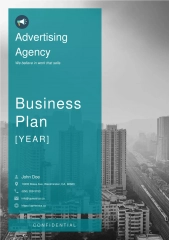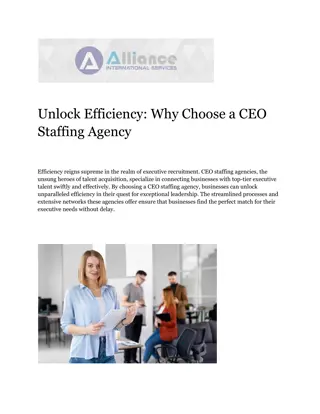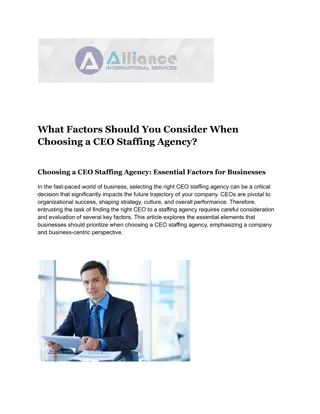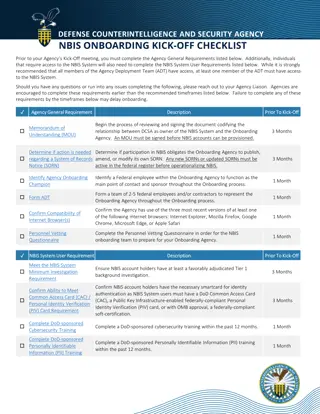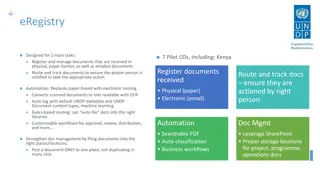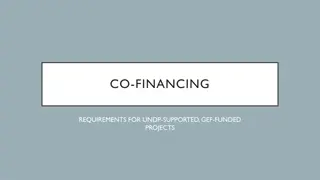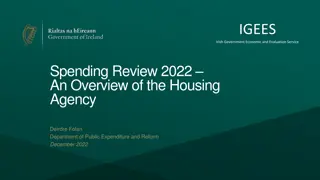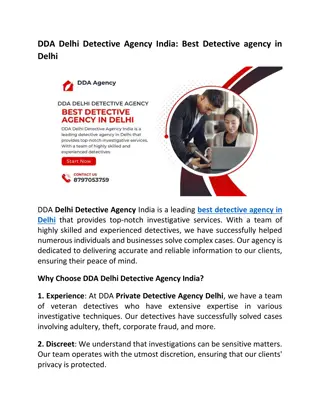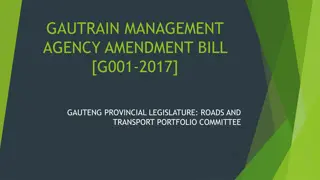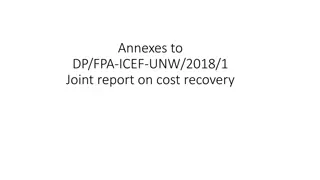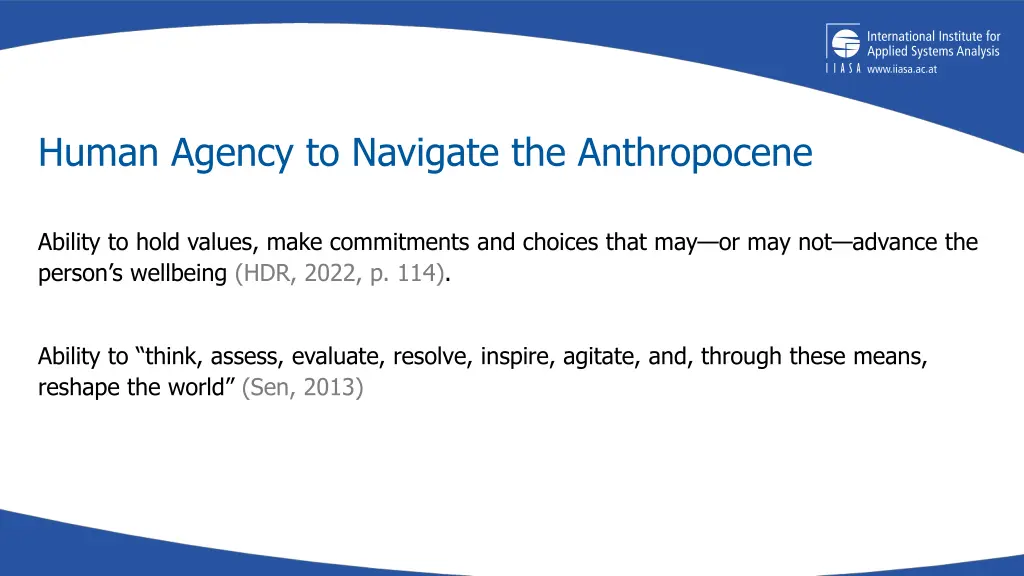
Understanding Human Agency in the Anthropocene Era
Explore the concept of human agency in navigating the challenges of the Anthropocene, focusing on values, choices, and the ability to reshape the world. Learn about the motivation for emphasizing agency, the ontology of agency, and key concepts for agency in the Anthropocene context, including affordances, sustainability, and technological evolution.
Download Presentation

Please find below an Image/Link to download the presentation.
The content on the website is provided AS IS for your information and personal use only. It may not be sold, licensed, or shared on other websites without obtaining consent from the author. If you encounter any issues during the download, it is possible that the publisher has removed the file from their server.
You are allowed to download the files provided on this website for personal or commercial use, subject to the condition that they are used lawfully. All files are the property of their respective owners.
The content on the website is provided AS IS for your information and personal use only. It may not be sold, licensed, or shared on other websites without obtaining consent from the author.
E N D
Presentation Transcript
Human Agency to Navigate the Anthropocene Ability to hold values, make commitments and choices that may or may not advance the person s wellbeing (HDR, 2022, p. 114). Ability to think, assess, evaluate, resolve, inspire, agitate, and, through these means, reshape the world (Sen, 2013)
Motivation for focussing on Agency with HDRO Until now the focus of development efforts has been on capabilities and material wellbeing achievements such as the standard of living. HDI for example, explicitly measures capabilities. There is a need to bridge this gap for two reasons (HDR, 2022): Individually, a sense of personal agency has been identified as a key marker of healthy psychology. Agency is perhaps what truly distinguishes what is alive from what is not . Phil Ball Collectively, agency is necessary to navigate today s uncertain times (e.g. behavioural change). The evolution of global collective agency is one of the prerequisites for navigating the Anthropocene 2
Ontology of Agency Any expression of agency is not an isolated instance, exercise of pure free will (choices divorced from the context) We find that agency is a temporal process that is: informed by the past this is the iterative / habitual element but oriented toward The present And also, the future(with a projective element to imagine alternative possibilities) (Emirbayer and Mische (1998, p. 962)) It includes choosing a reason for making choices (Williams et al., 2021) Agency cannot be reduced to imposing our will onto the world but involves questioning the basis of our choices -> assumptions, social norms etc 3
Concepts for Agency in the Anthropocene Context Affordances: Refer to what the environment offers to an agent (Roli et al., 2022) (originates in biology) They can be considered a material basis for agency : resources, resilient earth systems, technology Sustainability: implies taking into consideration other people's needs (future generations or people who live far away) in the exercise of agency. Technological Evolution: It has reached a stage where progress is increasingly defined by what we say no to versus what we say yes to. (Center for Humane Technology) 4
Different types of agency Type Definition Feature Example Primary agency Agency to fulfil essential needs for survival (satiable) Material and individualistic e.g., access to food, water, shelter (+ security) Economic agency Agency to fulfil material wants (insatiable) Material and individualistic e.g., consumption of energy and resources e.g., voting, participatory democracy, self-determination, ease of doing business, social status & influence Socio- political agency Agency to affect social-political circumstances if desired non-material and social Agency to influence intentionally and positively, wellbeing of others (including future generations and non-human life forms), beyond self- centric wants e.g., low-carbon lifestyles, voluntary limits on consumption (economic agency) Sustainable agency post-material and social 5
Agency Dynamic and Sustainability Unconstrained economic agency -> malfunctional agency 8
Thank you! Concluding thought: The enhancement of human agency as an essential component of human development is an end in itself but also a means to navigate the challenges of sustainable development in the 21st century.

